
Don't wait, act now
Send a quick email to your MP asking them to vote for the amendment
Send an email to your MP now
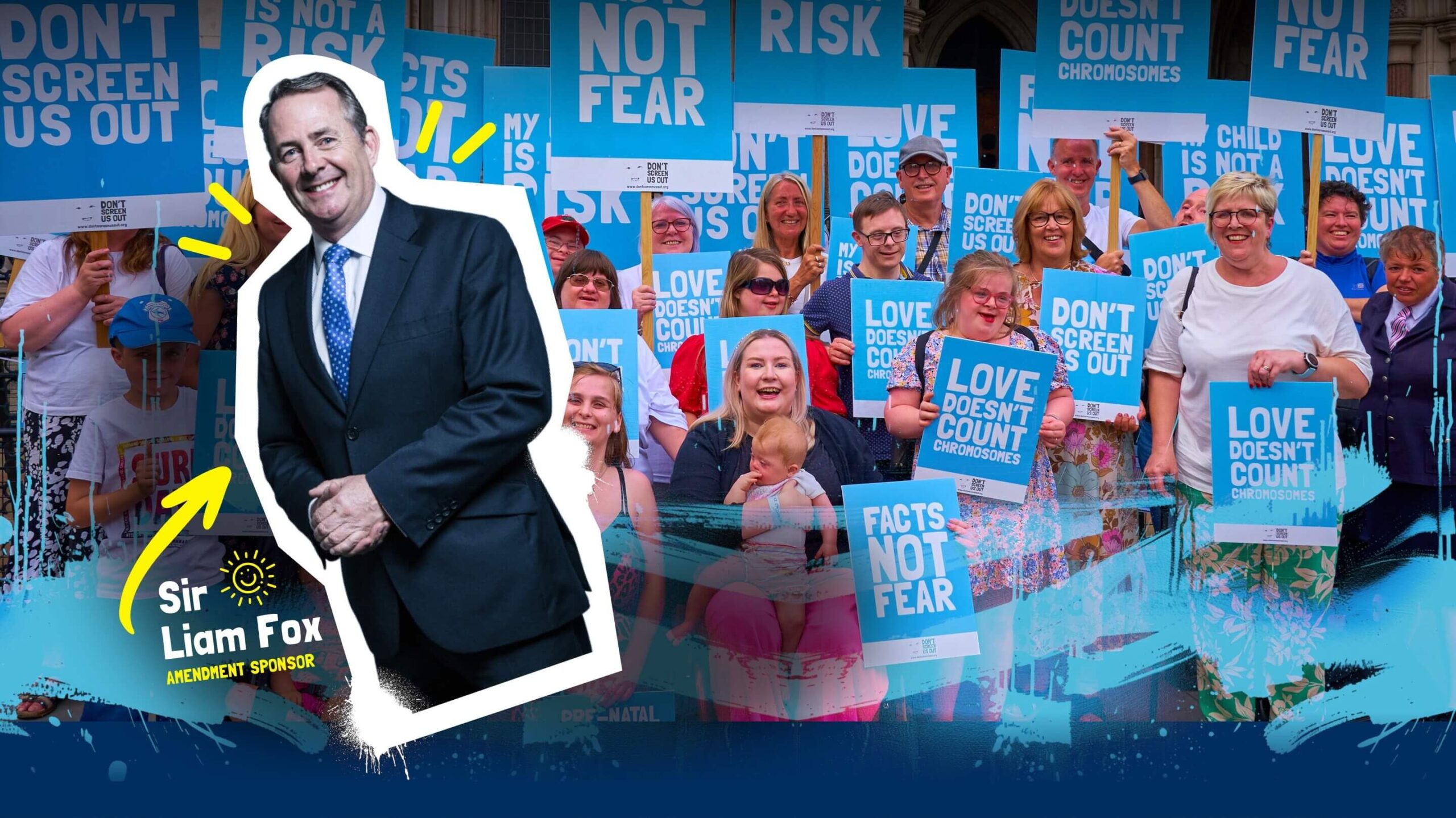
The amendment
Sir Liam Fox, former GP, cabinet minister and defence secretary, has tabled an amendment (New Clause 41) to the Government’s Criminal Justice Bill, signed by 60 MPs, which will bring the abortion time limit for babies with Down’s syndrome in line with the time limit for babies that do not have disabilities
The amendment has cross-party support from MPs from the Conservatives, Labour, Liberal Democrats, SNP, Workers Party and the DUP. This includes former Prime Minister, Theresa May, former Conservative Party leader and cabinet minister, Sir Iain Duncan Smith, former Liberal Democrat leader, Tim Farron, former cabinet minister, Sir David Davis, and former health minister, Maggie Throup.
The abortion time limit under Section 1(1)(a) of the Abortion Act is set at 24 weeks, but for cases in which a baby is thought to have a disability, including Down’s syndrome, abortion is currently available up to birth.
This amendment will equalise the time limit for babies with Down’s syndrome, meaning that it will be set at 24 weeks.
By having a different time limit for babies with disabilities including Down’s syndrome, section 1(1)(d) of the Abortion Act, promotes inequality and perpetuates negative stereotypes. This law sends a message that people with Down’s syndrome are less worthy of life and protection than others.
This provision in the Abortion Act harks back to a time when we thought it was better for people with disabilities not to be part of our society. We live in a far more inclusive and progressive society now, where we celebrate diversity, and our laws should reflect that.
You only have to look at the deeply discriminatory language used to describe people with disabilities by politicians on all sides of the debate in Parliament when this legislation was passed in 1967 and updated in 1990 to see that our current legislation was drafted at a time when discriminatory attitudes to people with disabilities were pervasive and how far attitudes have changed.
We’ve moved on. The law hasn’t. It’s time it did.

The case for change 1
Heidi Crowter and Máire Lea-Wilson’s case against the UK Government has put this issue on the national agenda
There has been growing momentum for a change in the law in this area after Heidi Crowter, a 28-year-old woman from Coventry who has Down’s syndrome, took a landmark case against the UK Government over the disability clause in our abortion law. Her case has been heard in the High Court and Court of Appeal.
Heidi was joined in her fight for justice by Máire Lea-Wilson from Brentford, West London, whose 4four-year-old son, Aidan, has Down’s syndrome. Máire Lea-Wilson was placed under pressure to have an abortion when a 34-week scan revealed her son had Down’s syndrome. There has been widespread coverage of Heidi and Máire’s case across major media outlets.
Some videos from their campaign
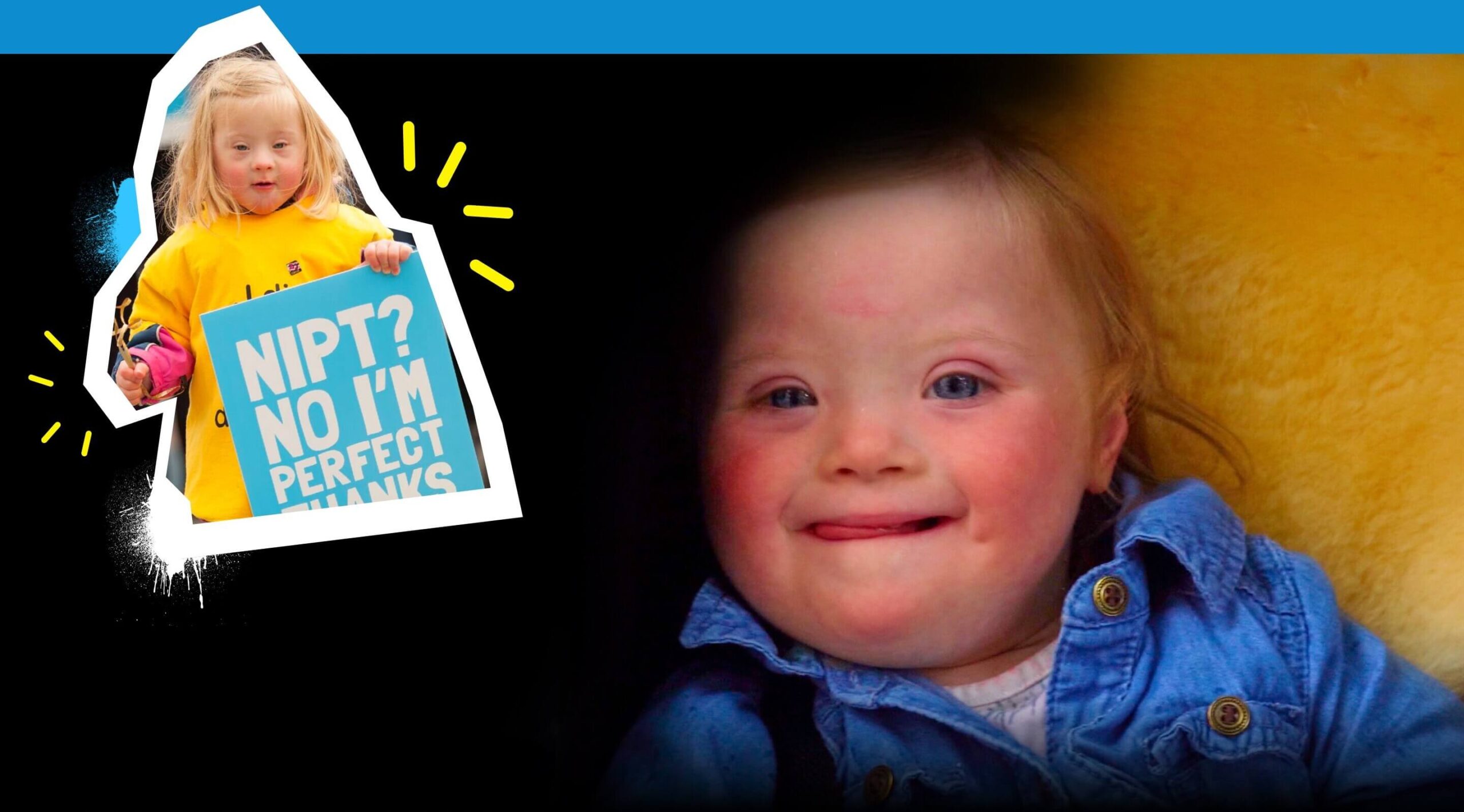
The case for change 2
Statistics
show the impact our discriminatory abortion legislation is having on the community of people with Down’s syndrome
87%
screened out:
Figures released on March 28 2024 show that 87.26% of all babies prenatally diagnosed with Down’s syndrome in England and the Crown Dependencies were screened out by abortion in 2021.
24%
increase:
The most recent full-year abortion statistics, for the year ending 31 December 2021, show there were 859 abortions where a baby had Down’s syndrome in 2021, an increase of 24% from 2020.
The actual numbers are probably higher…
- than reported due to underreporting of disability abortion statistics. A 2013 review showed 886 abortions for Down’s syndrome in England and Wales in 2010 but only 482 were reported in abortion statistics from the Department of Health and Social Care. The underreporting was confirmed by a 2014 Department of Health and Social Care review.

The case for change 3
United Nations
The UN Committee on the Rights of Persons with Disabilities has told the
UK to stop singling out babies with disabilities in our abortion legislation
The UN Committee on the Rights of Persons with Disabilities’ concluding observations on the initial report of the United Kingdom of Great Britain and Northern Ireland made a key recommendation that the UK change its abortion law so that it does not single out babies with disabilities. The Government has decided to ignore this recommendation.
The case for change 4
The Disability Rights Commission called this part of our abortion law “offensive to many people”
The Disability Rights Commission (now the Equality and Human Rights Commission) has said that this aspect of the Abortion Act “is offensive to many people; it reinforces negative stereotypes of disability…[and] is incompatible with valuing disability and non-disability equally.”

The case for change 5
The Parliamentary
Inquiry into Abortion for Disability recommended change
The 2013 Parliamentary Inquiry into Abortion for Disability found the vast majority of those who gave evidence believed that allowing abortion up to birth on the grounds of disability is discriminatory, contrary to the spirit of the Equality Act 2010 and that it affects wider public attitudes towards discrimination.
The Inquiry recommended Parliament review the question of allowing abortion on the grounds of disability and should consider repealing section 1(1)(d) of the Abortion Act, which allows for it.
The case for change 6
Polling
shows the UK public wants change
Polling has shown that the majority of people in England, Wales and Scotland feel that disability should not be grounds for abortion at all, with only one in three people thinking it is acceptable to ban abortion for gender or race but allow it for disability.
Warning
The following section includes the deeply discriminatory and upsetting language used by MPs and Peers as they debated the introduction of our current disability abortion law. We strongly advise discretion before viewing this section.
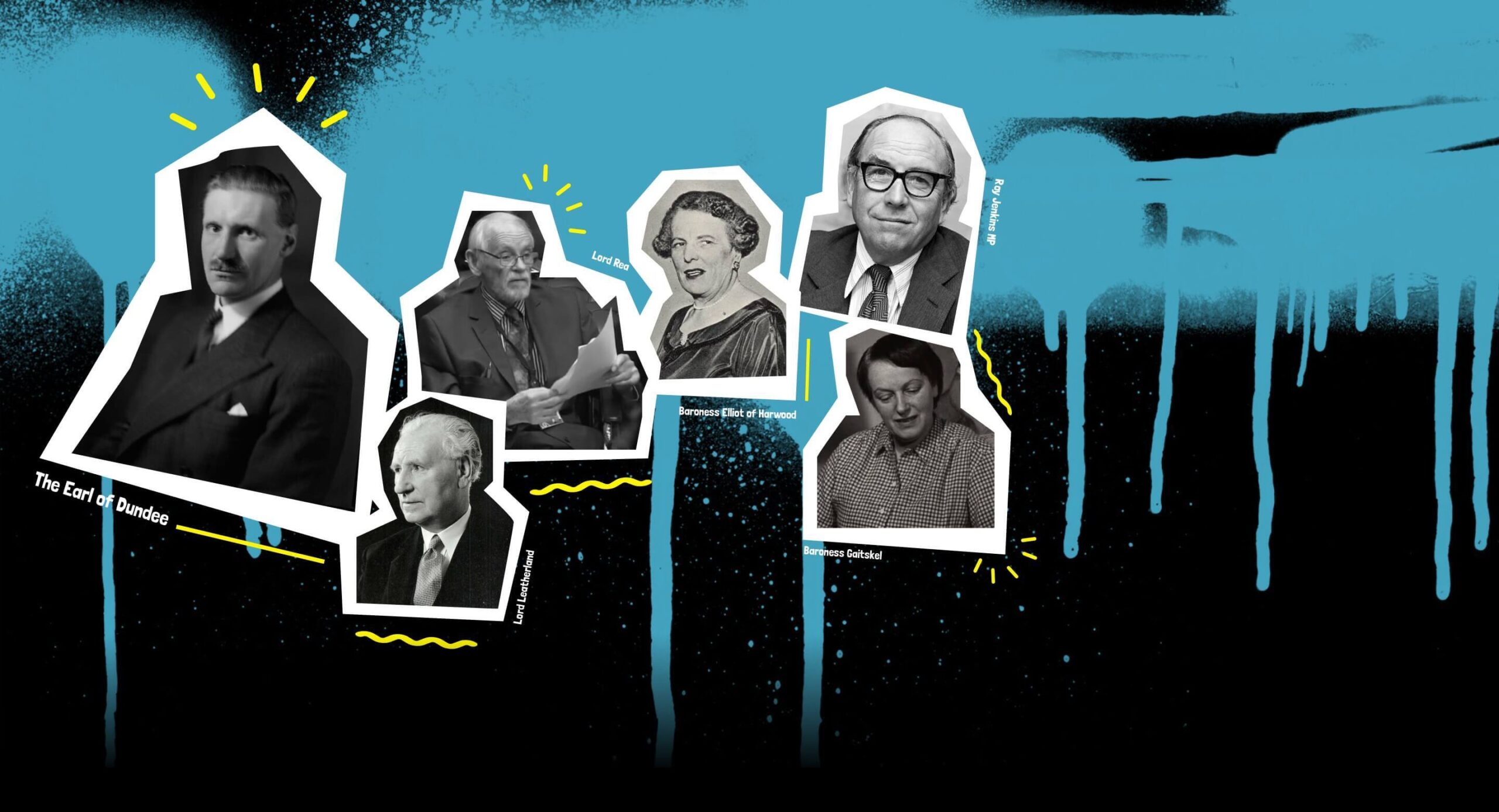
The right side of history?
Our current legislation was drafted at a time when deeply discriminatory attitudes to people with disabilities were pervasive
In 1967 (when the Abortion Act was introduced) and 1990 (when the time limit for abortions for disabilities was extended to birth), attitudes to disability were markedly different from what they are now.
If we look at the language used in the Hansard records of the Commons and Lords debates over the Abortion Act, we find babies with disabilities being referred to as ‘spastics’, ‘deformed’, ‘defective’, ‘abnormal’, and even ‘monsters’ and ‘monstrosities’. These words betray the often callous, ignorant, and certainly insensitive approach that people took to disability and people with disabilities at the time.
Some examples





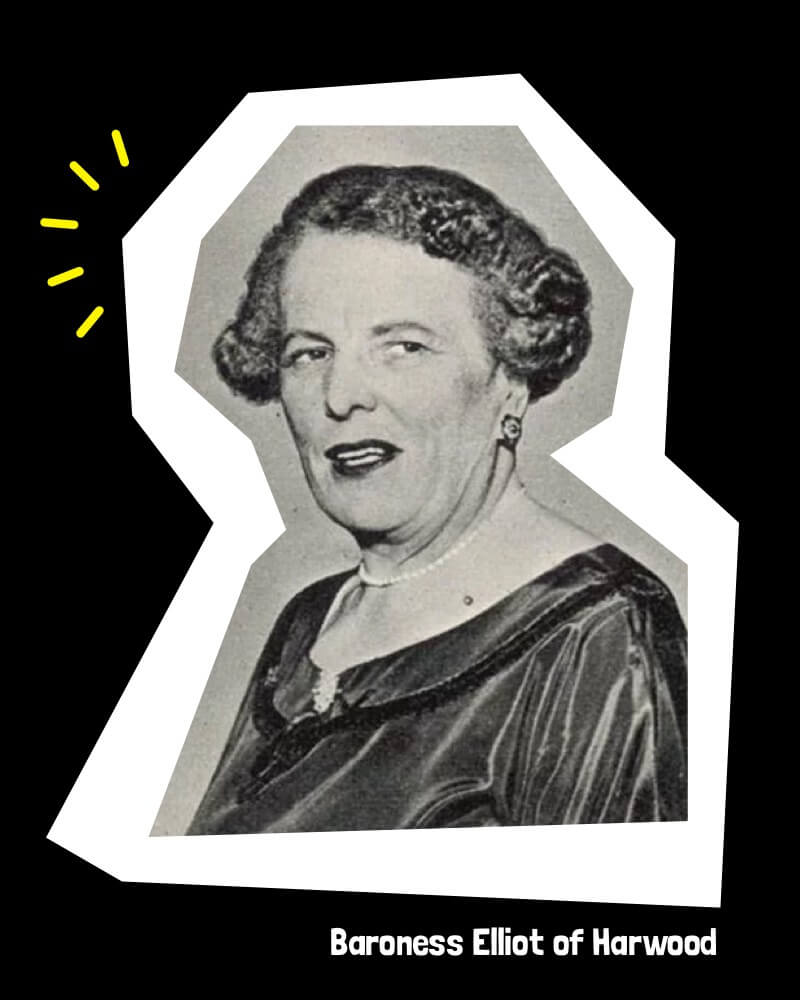


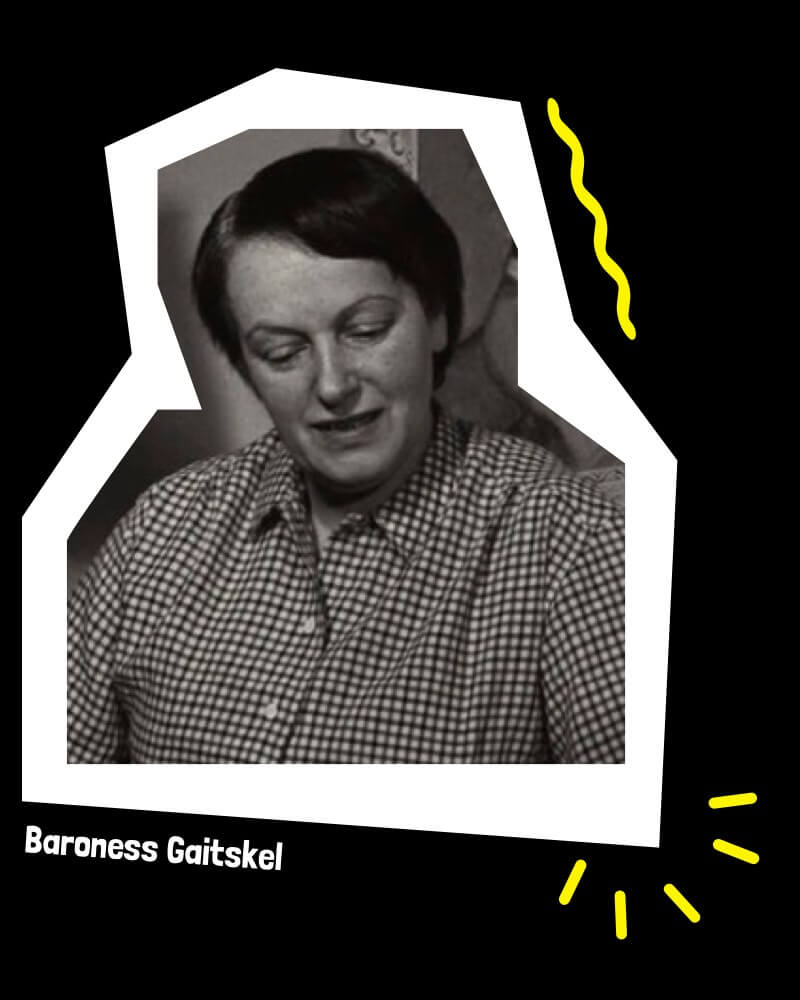

Who are Don’t Screen Us Out?
We are a group of over 17,000 people with Down’s syndrome, their families and supporters who are actively working to build a United Kingdom (UK) where people with Down’s syndrome are equally valued and have an equal chance of being born.
We work to help reform problematic legislation, policies and practice – alongside helping build a wider culture that accepts and embraces people with Down’s syndrome.
While we as a society have come a long way in our attitudes towards people with Down’s syndrome, there is still a large disconnect between the way that people with the condition are celebrated in society, and the continued existence of legislation, policies, practice and attitudes that lead to the very high number of babies being aborted when they are found to have Down’s syndrome.
Our goal is one of equality and to see an end to this disconnect – to stop babies with Down’s syndrome being screened out by abortion in the UK, to the point where a baby found to have Down’s syndrome has the same chance of being born as any other.
You can find out more about us here.

